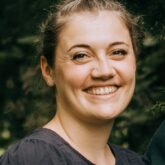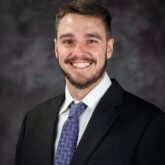Setting-up and Staffing Your Lab
New Investigator Bootcamp Webinar Series
Join us for the second webinar of SSR’s New Investigator Bootcamp series, titled “Setting-up and Staffing Your Lab”. This session is tailored toward future investigators seeking their first independent positions and features an expert panel, including Dr. Shuo Xiao, Dr. Xiaoqiu Wang, Dr. Anna Denicol, Dr. Elle Roberson, Dr. Nicholas Wege Dias. Moderator and audience questions will be answered on topics such as:
- R1 vs PUI (attracting candidates, start-up fund differences, timelines)
- Pros & Cons of different hiring strategies, who to hire
- What you need to open a lab
- Identifying Mentors and peers
- How to build long-term relationships
- How your personal leadership style impacts your management style
- Utilizing the Statement of Work with your hires
- Personnel and space management
- Common pitfalls and mistakes
KEYNOTE AND PLENARY SPEAKERS

Elle Roberson, PhD
Dr. Elle Roberson started her lab at CU Anschutz Medical Campus in January of 2023. Her scientific background is mainly in how cellular signaling informs development, and that is carried on in her lab where they study how Hedgehog signaling regulates uterine remodeling in the adult mouse.

Nicholas W. Dias, PhD
Dr. Nicholas W. Dias is an assistant professor at the Animal Sciences and Industry Department at Kansas State University. Nicholas has a 60% teaching, 40% research appointment. Nicholas research program focuses on factors that influence fertility of beef females enrolled into estrous synchronization protocols, with hopes to develop easily adoptable management strategies that result in improved fertility.

Shuo Xiao, PhD
Dr. Shuo Xiao, MBBS, PhD, is an Associate Professor from the Department of Pharmacology and Toxicology at Rutgers University School of Pharmacy. He started his independent faculty position in 2017. His current research is focused on (1) ovarian impacts of environmental contaminants and clinical drugs; (2) drug development of non-hormonal female contraception and fertoprotectant, and (3) engineering female reproduction-on-chip. These projects are supported by NIEHS, NICHD, DOD, and Bill & Melinda Gates Foundation.

Xiaoqiu Wang
Dr. Xiaoqiu (Churchill) Wang is an Associate Professor at North Carolina State University (NCSU). His research focuses on blastocyst implantation and endometrial function during pregnancy and disease states. Dr. Wang earned a BSc and Ph.D. from China Agriculture University, followed by a second Ph.D. at Texas A&M University, where he focused on uterine capacity and conceptus development. His postdoctoral work at NIEHS identified key transcription factors for uterine receptivity and a novel uterine-specific enhancer using CRISPR technology. Currently, Dr. Wang’s research explores reproductive aging and the role of adrenomedullin in conceptus implantation, with funding from NIH and USDA. He is also dedicated to mentoring future scientists at NCSU.

Anna Denicol, PhD
Anna Denicol is Associate Professor UC Davis in California and a reproductive and developmental biologist. After receiving a DVM from the Federal University of Rio Grande do Sul, Brazil, Anna earned a MPVM degree from the UC Davis school of veterinary medicine studying the effects of progesterone and the follicular wave on fertility of dairy cows. Anna obtained a PhD degree from the University of Florida under the mentorship of Peter Hansen where she studied the roles of WNT signaling on cell fate decisions and competence of bovine embryos to establish a pregnancy. Anna has been in the faculty at UC Davis since 2016 and during this time she has mentored 3 PhD students, 6 MS students, and two postdoctoral scholars to completion. Using the cow as the model species, Anna’s laboratory focuses on the biology of female gametes including the specification of primordial germ cells in the pre-implantation embryo, oogenesis and the establishment of the ovarian reserve during fetal life, and folliculogenesis during reproductive life. One of the main goals of this research is to develop methods to enable in vitro gametogenesis, for which the laboratory has been employing embryonic stem cells to study the differentiation of gametes. Between publications resulting from her graduate degrees and her independent research, Anna has published 35 peer-reviewed articles so far, which collectively have been cited over 1,250 times.

